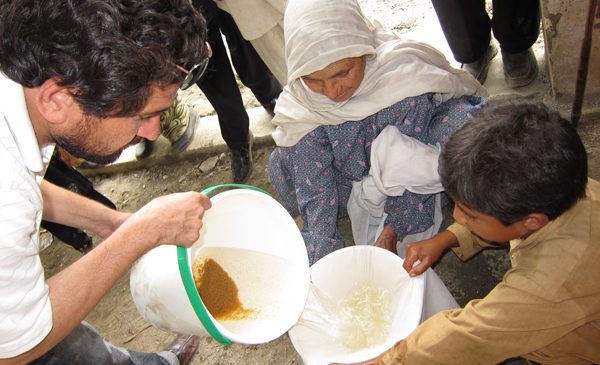Zulfiquar Ali Haider is a public health engineer working for Oxfam in flood-hit northern Pakistan. He is in Swat – one of the worst-hit areas – and this is his eyewitness account.
Day Six
Oxfam focuses on supplying clean water in emergencies because it is vital.
There is lots water around, but it is dirty and contaminated. Water-borne diseases, like diarrhoea, are a huge risk in the aftermath of a disaster like this, and children are especially vulnerable.
A sip from a stagnant pool can be deadly.
This is why in Swat we are rehabilitating municipal water systems and trucking water to people.
Food is also a key need. Our livelihoods and food security team has been visiting Swat and assessing how we can help people access food.
They have found that local markets are still in existence and functioning, but those who have lost most cannot afford to buy food.
We are looking to introduce vouchers, which people can swap at market stalls for food. This is quicker than bringing food in and provides a boost to the shattered local economy.
This disaster will reverberate for sometime. The losses have just been tremendous.
But some things have survived and we want to preserve them. Many cattle were washed away, but not all of them.
The ones that survived are weak and vulnerable and could still succumb to disease. If they survive they are a source of income for their owners, if they are lost, their owners are more desperate still. We are planning to vaccinate the surviving animals against disease.
The weather forecasts for the country look grim again. The front page of local newspaper Dawn says that a massive flood may inundate four districts of Punjab and eight districts in Sindh this weekend.
I wonder when this will end.
Source: BBC Online
Copyright: BBC
